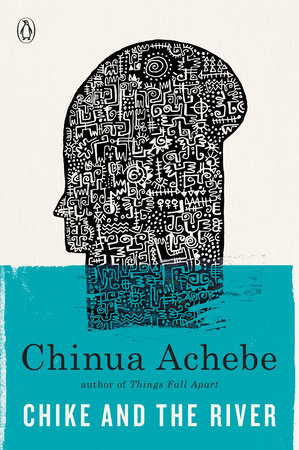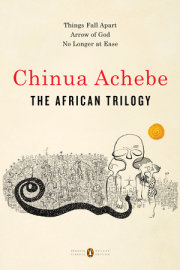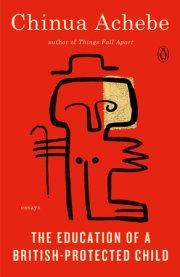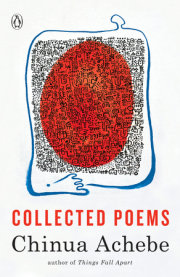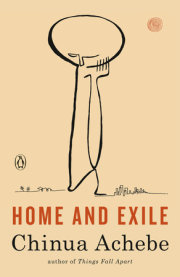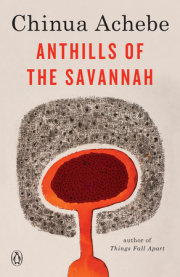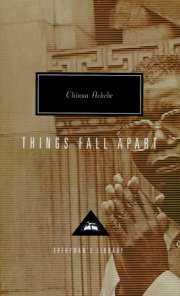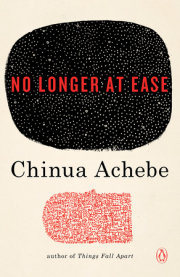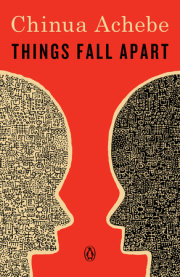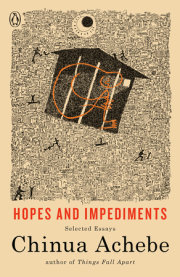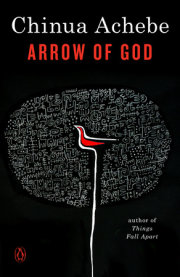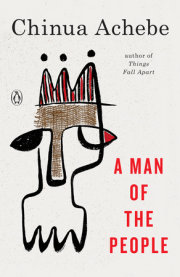1
Chike Leaves His Village
Chike lived with his mother and two sisters in the village of Umuofia. His father had died many years ago. His mother worked very hard to feed and clothe her three children and to send them to school. She grew most of the food they ate-yams, cassava, maize, beans, plantains, and many green vegetables. She also traded in dry fish, palm oil, kerosene, and matches.
Chike was now eleven years old, and he had never left his village. Then one day his mother told him that he would be going to Onitsha in the new year to live with his uncle who was a clerk in one of the firms there. At first Chike was full of joy. He was tired of living in a bush village and wanted to see a big city. He had heard many wonderful stories about Onitsha. His uncle's servant, Michael, had told him that there was a water tap in the very compound where they lived. Chike said this was impossible but Michael had sworn to its truth by wetting his first finger on his tongue and pointing it to the sky. Chike was too thrilled for words. So he would no longer wake up early in the morning to go to the stream. The trouble with their village stream was that the way to it was very rough and stony, and sometimes children fell and broke their water-pots. In Onitsha Chike would be free from all those worries. Also he would live in a house with an iron roof instead of his mother's poor hut of mud and thatch. It all sounded so wonderful.
But when the time actually came for Chike to leave his mother and sisters he began to cry. His sisters cried too, and even his mother had signs of tears in her eyes. She placed one hand on his head and said, "Go well, my son. Listen to whatever your uncle says and obey him. Onitsha is a big city, full of dangerous people and kidnappers. Therefore do not wander about the city. In particular do not go near the River Niger; many people get drowned there every year . . ."
She gave Chike many other words of advice. He nodded his head and sniffed because his nose was running. Chike's nose always ran when he cried.
"Stop crying," said his mother. "Remember, you are now a big boy, and big boys don't cry."
Chike wiped his eyes with the back of his hand. Then he took up his small wooden box which his mother had bought from James Okeke, the local carpenter. Inside it were his few clothes and schoolbooks.
"Let us go," said his uncle who had been waiting patiently. "If we don't hurry now, we shall miss the lorry."*
Chike set the box on his head and followed his uncle. They were going to the main road half a mile away to take the lorry that passed by their village
to Onitsha. It was a very old lorry called Slow-
and-Steady. It always had great difficulty going up any hill. Whenever it got to a steep hill the driver's mate would jump down and walk behind it with the big wooden wedge. Sometimes the passengers were asked to climb down and help push the lorry. The forty-mile journey to Onitsha took Slow-and-Steady more than three hours. Sometimes it broke down completely; then the journey might take a whole day or more.
Chike was, however, lucky on the day he made the journey. Slow-and- Steady was in good form and did not break down at all. It only stopped after every hill to take a tin of water.
Copyright © 2011 by Chinua Achebe. All rights reserved. No part of this excerpt may be reproduced or reprinted without permission in writing from the publisher.

